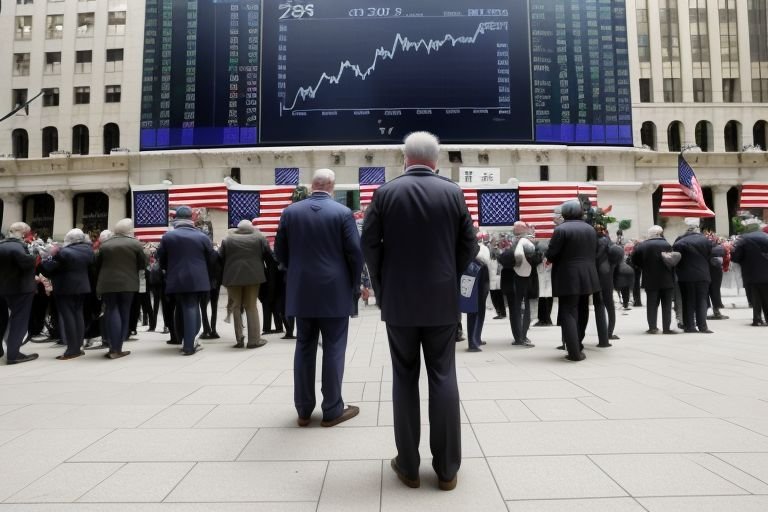
US Stock Market Rally Pauses As Investors Await Key Economic Data
The US equity market showing signs of a short term consolidation Wednesday after some impressive gains made over the prior days which saw most important stock market averages pushing fresh record high territory. Market participants stepped back from the equities prior to important releases of economic figures this week including Personal Consumption Expenditure – the core inflation measure used by the Federal Reserve.
Nasdaq ended down 0.2% at 5,245 and the Dow Jones Industrial Average fell slightly, down 0.1% at 39,170. The technology Nasdaq Composite on the other hand, turned lower and rose by a small 0.3% to 16,430 by the end of the day supported largely by big techs. Market turnover was not very voloumous due to the lack of certainty from market counterparts when it comes to major events that are associated with huge leverage.
PCE, released on Friday, gives more details about the rates of inflation and the FED may use the information to adjust its monetary policies in the forthcoming months. Some recent statements from the Feds speak volumes in indicating that the central bank doesn’t hasten the implementation of reduced interest rates given the stability of the US economy and high inflation rates.
This has prompted a change in market expectation of further rate cuts for 2024 by reducing forecasts for a credit balance. In corporate news, the shares of Nvidia advanced a further 2.5% to set a fresh record high price. They are up more than triple in the last year on the back of soaring demand for its AI chips, and growing enthusiasm for the artificial intelligence revolution.
Similarly, other players in the technology sector, including Microsoft, Apple and Alphabet also had small increases to support the Nasdaq. In this regard, Tesla stock declined by 3% since the company lowered the prices of some of its models in important markets in bid to address demand issues in addition to impacts on margins. Oil fell back from recent highs as the energy sector ended among the weakest.
Exxon Mobil and Chevron both fell by more than 1% on the same index. The financial sector was also pulled down with JPMorgan and Bank of America down a similar 0.5% each. The yield on the benchmark 10-year Treasury note increased slightly to 4.24% as the market tried to find traction after Fed comments and adjust rate cut expectations.
The dollar index that tracks the performance of the greenback against a bundle of other global currencies was little changed near a one-month high. In economic news, new data revealed on Wednesday provided a measure of strength in US manufacturing, as durable goods orders in the country increased in February by more than analysts had estimated.
But another report showed that contracts to purchase existing homes declined in February for the first time in three months, suggesting more hurdles in the housing sector due to expensive credit. Stock market investors are now awaiting the final figure of the Q4 GDP on Thursday along with the weekly data of jobless claims.
These could join the PCE inflation data for Friday in shedding more light on the state of the US economy along with any future policy on monetary policy. Especially the recent rebound in US stocks, S&P 500 has reached only 20 P/E multiple based on forward earnings estimates. Some of the market experts have used such indices to caution that markets may be overbought, and there may be a short-term reversal in the markets.
However, others noted that better corporate earnings growth and the persistent advances in AI could again sustain higher multiple expansion. Market players are also gearing up for the Q1 2024 earnings season which gets under way in mid April. Primary estimates for Q1 have recently been revised lower but analysts still estimate calendar Q1 S&P 500 operating profit to be higher year-on-year.
The technology sector is expected to drive the earnings growth as focus on AI and cloud computing continues. In the future, markets will be focusing on events happening geopolitically such as the conflict in the Middle East or the forthcoming USA presidential poll. These ones could distorted fairness in the markets in the coming months.
Still, most strategists are hopeful on the longer-term outlook for US equities based on an assuming strong economy, declining inflation and possible productivity benefits from the implementation of artificial intelligence. But they also remind that further recovery is not going to be as easy as the recent upward trend and investors should be ready for some sort of volatility.


